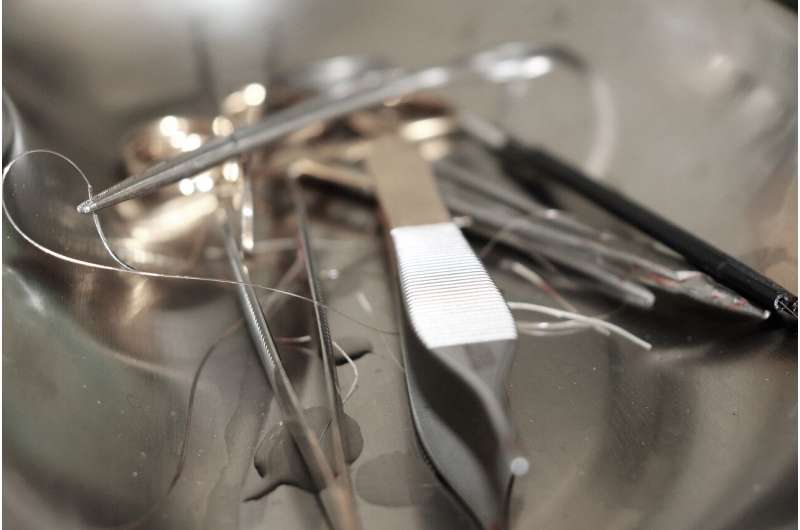This article has been reviewed according to Science X's editorial process and policies. Editors have highlighted the following attributes while ensuring the content's credibility:
fact-checked
peer-reviewed publication
trusted source
proofread
Early cleft palate surgery found to give better speech results

According to a new international study, cleft palate surgery at the age of 6 months provides better conditions for speech and language development compared to surgery at 12 months. The results were published in the New England Journal of Medicine by researchers from Karolinska Institutet and Karolinska University Hospital, among others.
Isolated cleft palate is a congenital condition where the palate is not closed and there is an opening between the mouth and the nose. The condition affects 1 to 25 newborns per 10,000 births worldwide.
"There has previously been limited evidence for the optimal age for cleft palate surgery in children to achieve the best results," says Anette Lohmander, professor emeritus at the Department of Clinical Science, Intervention and Technology at Karolinska Institutet, who was responsible for the ethical application for the Swedish part of the study and principal investigator for the Stockholm center in the study.
The study involved 558 children from 23 different centers around Europe and South America. Of these, 235 children were randomly assigned to a group to undergo surgery at 6 months of age and 226 children were randomly assigned to undergo surgery at 12 months of age.
Speech-language therapists/pathologists performed standardized audio-video recordings at 1, 3 and 5 years of age. The researchers then evaluated the children's babbling, velopharyngeal function, and speech.
At age 5, the researchers found insufficient velopharyngeal function in 21 children (8.9%) who had surgery at 6 months of age compared with 34 children (15%) who had surgery at age 12 months.
Complications resulting from surgery were rare in both groups. Four serious adverse events were reported but were resolved on follow-up.
The conclusion of the study was that velopharyngeal function for speech at 5 years was better in the children who had undergone surgery at 6 months of age than in those who had undergone surgery at 12 months of age. Risks associated with earlier repair may include maxillary arch constriction and the need for secondary surgery for velopharyngeal insufficiency.
"An additional advantage of the early surgery age was a higher incidence of canonical syllables. It is a milestone in children's language development and is established in typically developed children by the age of 10 months at the latest," says Anette Lohmander, who continues,
"The children included in the study had no developmental delay or other deviant conditions. The conclusion is that when it is possible to operate on the cleft palate early, it seems to provide the best conditions for speech and language development."
The study was led by Professor William Shaw on behalf of the University of Manchester and Professor Carol Gamble on behalf of the University of Liverpool, along with senior co-investigators from the Universities Gothenburg, Copenhagen, São Paulo, and Edinburgh.
More information: Carrol Gamble et al, Timing of Primary Surgery for Cleft Palate, New England Journal of Medicine (2023). DOI: 10.1056/NEJMoa2215162




















